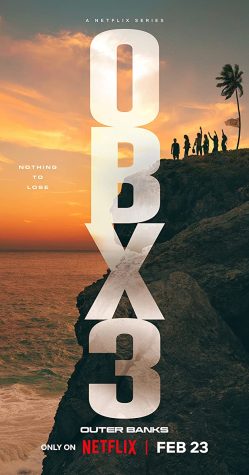Interstellar Is Out Of This World

Everyone dreams of exploring space, pondering extraterrestrial life, and interstellar travel. Christopher Nolan’s new movie, ‘Interstellar’, revives our curiosity in the universe in an extremely entertaining and interesting film that is easily the best movie of the year. Those familiar with Nolan’s intriguing craft will surely not be disappointed.
“[Interstellar is] a soulful, must-see masterpiece, one of the most exhilarating film experiences so far this century, ” New York Post movie critic Lou Loumerick says.
What makes the movie so exhilarating? The real question is what doesn’t make it so life-changing. The story is simple: Cooper, a future engineer turned farmer portrayed by the brilliant Matthew McConaughey, is offered a chance to seek a refugee planet for the human race in another solar system. The plot thickens when Earth is covered by dust storms, failing crops, and a bleak future. The planet has reverted to simple means of life, and mankind must relocate.
After only about 30 minutes, I felt a real connection to Cooper. McConaughey’s acting complemented with Nolan’s directing truly creates that parallel universe in which you are taken out of reality and thrown into the movie’s plot. Nolan’s ensemble cast, including Michael Caine, Anne Hathaway, Jessica Chastain, and Mackenzie Foy (all familiar faces), delivered compelling performances and deft character development. Without giving away major details, the movie explores scientific elements mixed with theory, and delves into our moral behavior while invoking thoughts of our ‘human condition’. My mind was stimulated in a way it had never been before. What is existence? Why are we here? Interstellar boldly provokes the mind.
An important part of the film is its soulful soundtrack, delivered by the one and only Hans Zimmer. The music truly speaks to the soul. When it was time to feel anxious, I felt anxious. When it was time to feel exhilarated, I felt exhilarated. When it was time to feel triumph, I did just that.
“I really just wrote about what it meant to be a father,” said Zimmer. “And [Nolan] came down and sat on my couch and I played it for him. He goes, ‘Well, I better make the movie now.’ And I’m going, what is the movie? And he starts describing this huge journey, this vast canvas of space and philosophy and science and all these things.”
The music paired with the phenomenal space imagery created an unparalleled atmosphere. The movie’s ambition allowed it to explore elements such as black holes, worm holes, and even a tesseract (a fourth dimensional cube). The depictions of these elements are so realistic you might even believe it was real space. The movie relies on computer generated images (CGI), but looks as if the movie was filmed in actual outer space.
One of the best elements of this film was the science. Rarely can a movie be made about physics and science that can hold audiences, but this movie glues audiences to their seats. The movie delves into known elements such as black holes and also theoretical elements such as wormholes. It boldly explains theories of gravity and relativity, but Nolan keeps a perfect amount of science without losing the audience. Nolan is an expert at reaching audiences, even with elements of science. Kip Thorne, a leading astrophysicist from the California Institute of Technology, both co-produced and acted as a scientific consultant for the film.
On the other hand, this movie is the penultimate of what I would have liked to see. By all means, this movie is one of the best science fictions movies ever made. However, when dealing with a film with so many elements there is no way perfection can be achieved. With a running time of three hours, the film makes you still want more. I am confident Interstellar will stand the test of time and become a classic like 2001: A Space Odyssey, and inspire the passion of young and old engineers and astronauts.
FSA Connection Questions
- What does the word deft mean?
- Does the author like the movie?
- Who directed the movie?
- Who served as a consultant for the movie?
- What does the author think of the science of the movie?

Kevin “K.Chow” Chow is currently a senior at Freedom High School. He was born in Auckland, New Zealand and his family relocated to Australia and Tampa....










